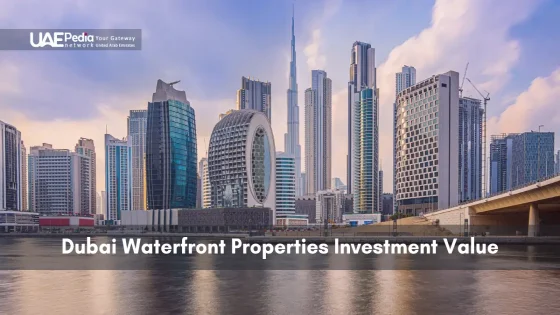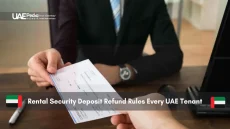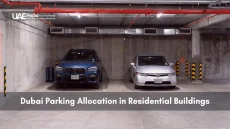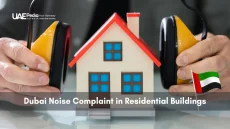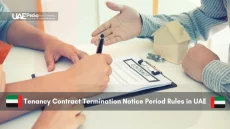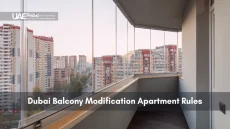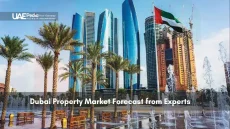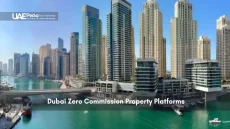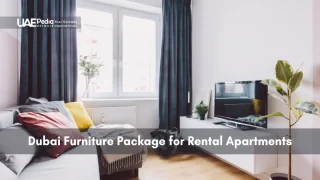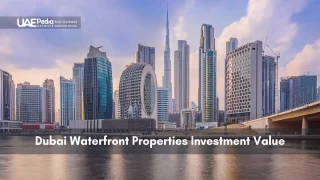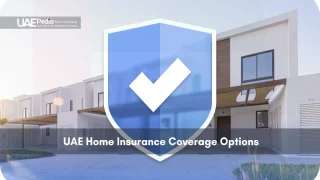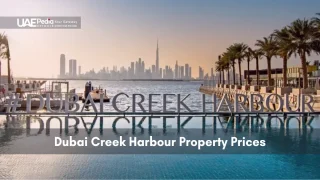What if a country’s tax system rewarded bold investments instead of nickel-and-diming ownership? The UAE flips the script—no annual levies on real estate, just sun-soaked opportunities for global visionaries.
Here, the financial landscape sparkles with simplicity. Unlike many Western models, you won’t find yearly fees tied to your holdings. Instead, the focus lands on transactions: think registration costs or modest municipal charges linked to rental value. It’s a framework designed to welcome fresh capital, not penalize it.
This approach isn’t accidental. Real estate fuels the Emirates’ meteoric growth, from Dubai’s shimmering towers to Abu Dhabi’s cultural hubs. By sidestepping complex ownership taxes, the UAE positions itself as a launchpad for savvy investors craving clarity and growth.
Ready to explore how this works in practice? We’ll unpack specific fees, compare global systems, and share strategies to maximize your stake in one of the world’s most dynamic markets—all through the lens of someone who’s navigated these dunes firsthand.
Key takeaways:
- Zero annual ownership fees create a magnet for global capital
- Transaction-based costs keep long-term investments streamlined
- Real estate remains central to the UAE’s economic playbook
Introduction to the UAE’s Investor-Friendly Tax Landscape
Imagine keeping every dirham you earn from your investments. That’s not fantasy here—it’s standard practice. The Emirates’ financial ecosystem operates like a high-efficiency engine, lubricated by strategic incentives rather than bureaucratic friction.
Let’s cut through the noise. While other nations deduct chunks of earnings through layers of levies, this region takes a different path. Zero income tax means you decide how to reinvest profits from ventures or leases. We’ve watched global entrepreneurs pivot here faster than a Tesla Model S Plaid, and here’s why:
Where Growth Meets Opportunity
Registration fees sit at 4% of a property’s value in Dubai—split evenly between buyer and seller. Compare that to New York’s 2% transfer tax plus state levies. But numbers only tell half the story:
“Moving my portfolio here felt like swapping a leaky bucket for a steel vault. My rental income stays intact, and I sleep better knowing there’s no annual wealth drain.”
| Emirate | Registration Fee | Municipal Charge |
|---|---|---|
| Dubai | 4% + AED 580 admin | 5% of annual rent |
| Abu Dhabi | 2% + AED 1,100 | 3% of rent value |
| Sharjah | 2% flat | 2% annual levy |
The Ownership Advantage
Why rent when buying becomes this straightforward? Over 60% of expats now own homes here versus 35% five years ago. With residency options tied to real estate holdings, it’s a golden era for building equity.
Consider this: A AED 2 million villa generates ~AED 160,000 yearly in leases. Keep 95%+ versus 60-70% in taxed markets. That gap funds upgrades, expansions, or that desert safari you’ve been eyeing.
Understanding property tax regulations in uae
What if your biggest expense was just the welcome mat? That’s how transactions work here—think of costs as entry tickets, not recurring tolls. Instead of yearly drains on your assets, you’ll encounter clear-cut charges during purchases or leases. It’s like paying for a concert wristband upfront, then enjoying the show without hidden surcharges.
Where Upfront Costs Meet Long-Term Gains
Let’s break down the numbers. When acquiring real estate, you’ll typically face two main expenses:
- Registration fees: Ranging from 2% to 4% of the asset’s value
- Transfer charges: Often split between buyer and seller
Dubai’s 4% registration fee includes a small admin charge—compare that to London’s 3-12% stamp duty plus annual council taxes. The math gets sweeter when you factor in zero income levies on rentals. One client’s beachfront apartment nets AED 200k yearly—all of it stays in their account.
“I used to budget 30% for taxes back home. Here? That slice funds renovations or extra units. Game-changer.”
| Emirate | One-Time Fees | Ongoing Charges |
|---|---|---|
| Dubai | 4% + AED 580 | 5% of rent value |
| Abu Dhabi | 2% + AED 1,100 | 3% municipal fee |
| Ras Al Khaimah | 2% flat | None |
This setup turns administration into a quick sprint rather than a marathon. No annual assessments. No surprise bills. Just crisp paperwork when you buy, sell, or lease. For globetrotters building portfolios, it means more time strategizing growth—less time decoding tax codes.
Comparing UAE and Western Real Estate Tax Models
Picture two financial blueprints: one with yearly tollbooths, the other with a single entry fee. Western markets often treat ownership like a subscription service—pay to play, every year, no exceptions. The Emirates? Think all-access pass with no hidden renewals.
When Fees Meet Philosophy
Let’s crunch numbers. A $500k home in Texas carries ~1.8% annual levies—$9,000 yearly, forever. Dubai’s model? One-time 4% charge at purchase ($20k) plus 5% municipal fee on rentals. That’s like buying a phone outright versus endless carrier contracts.
| Cost Factor | Western Model | UAE Approach |
|---|---|---|
| Annual Charges | 1-2.5% of value | 0% |
| Transfer Fees | 2-12% | 2-4% |
| VAT Application | On most transactions | 5% (commercial only) |
VAT here behaves like a polite guest—present at business deals, absent from residential gatherings. Commercial leases get the 5% treatment, but homes? Breathe easy. One investor swapped London’s 12% stamp duty for Sharjah’s 2% flat fee, freeing up £50k for upgrades.
“Predictable math beats guessing games. I budget once at purchase instead of stressing over annual assessments.”
This clarity becomes rocket fuel for portfolios. Lower upfront and ongoing costs mean faster ROI—capital that elsewhere vanishes into municipal coffers stays working for you. Whether flipping condos or building rental empires, the math stays refreshingly simple.
Detailed Analysis of Transaction-Based Fees
Think of transaction fees like a one-time shopping spree rather than a monthly membership. The Emirates’ approach cuts through complexity—pay once, then focus on growth. Let’s unpack the two main costs you’ll encounter when acquiring assets here.
Transfer Fee Structures and Calculation Examples
Dubai’s 4% transfer charge applies to purchases—split between buyer and seller. For a AED 2.5 million villa, that’s AED 100,000 total. Abu Dhabi? Just 2% plus AED 1,100 admin. Compare that to Paris’s 7% stamp duty:
“Knowing the fees upfront lets me budget smarter. No guessing games—just clear math.”
| Emirate | Transfer Fee | Admin Cost |
|---|---|---|
| Dubai | 4% | AED 580 |
| Sharjah | 2% | None |
| Ajman | 2% | AED 500 |
Registration Fees and Their Impact on Investment Costs
Registration charges vary by asset value. Dubai adds 4% + AED 580, while Ras Al Khaimah offers 2% flat. This transparency helps owners forecast expenses—a AED 5 million commercial space in Dubai costs AED 200,580 upfront. No hidden annual surprises.
Investors appreciate this predictability. One client reallocated AED 300k saved from lower fees into smart home upgrades—boosting rental yields by 15%. The system rewards strategic planning, turning entry costs into growth fuel.
Navigating Indirect Taxes and VAT in UAE Real Estate
What if taxes worked like a menu—pick your dish, pay once, enjoy the meal? That’s the Emirates’ approach to value-added levies. While transaction fees handle the upfront costs, VAT adds subtle flavor to specific deals. Let’s decode how this impacts your plate.
When 5% Makes All the Difference
Residential leases and sales skip VAT entirely. Commercial? That’s where the 5% rule kicks in. Imagine two identical buildings side by side:
| Aspect | Residential | Commercial |
|---|---|---|
| VAT Rate | 0% | 5% |
| Lease Agreements | Exempt | Taxable |
| Service Charges | VAT-free | 5% added |
“Switching my portfolio to residential rentals saved 6 figures annually. That 5% gap funds renovations and boosts tenant perks.”
Service fees tell another story. Maintenance or agent commissions for commercial spaces include VAT—residential stays clean. A AED 50k annual service bill becomes AED 52.5k for offices. Over a decade? That’s AED 25k extra.
Profits thrive on these nuances. Commercial investors often adjust rental rates to offset the 5%, while residential owners keep math simple. Smart allocations matter: one client redirected VAT savings into smart home tech, lifting rental appeal by 20%.
Key takeaway? Treat VAT like a spice—best used where it enhances the flavor. Residential dishes stay mild; commercial recipes get a pinch of heat. Master the blend, and your financial feast stays satisfying.
Insights into Corporate and Income Tax Considerations
What if your portfolio’s growth engine faced fewer speed bumps? The Emirates’ framework turns complex fiscal math into clean equations. Let’s explore how recent changes affect your bottom line—and why global investors are recalculating their strategies.
Corporate Tax Implications on Asset Holdings
Since June 2023, a 9% corporate levy applies to profits over AED 375,000. Here’s the twist: free zones and residential rentals often dodge this entirely. Imagine a Dubai-based company earning AED 500k from commercial leases—only AED 125k gets taxed. Compare that to New York’s 21% federal rate on all profits.
“Structuring through a free zone saved my firm AED 200k last year. That’s two prime studio apartments added to our portfolio.”
| Scenario | UAE Treatment | US Comparison |
|---|---|---|
| Capital Gains | 0% (residential) | 15-20% federal |
| Rental Income | Tax-free* | Ordinary income rates |
| Corporate Profits | 9% >AED 375k | 21% flat |
Navigating Cross-Border Reporting
Americans living here still file Form 1040—but there’s silver lining. No double taxation thanks to foreign earned income exclusion. Example: A Texas expat earning AED 1M from Abu Dhabi leases reports it but pays $0 stateside if qualifications are met.
- Use Form 2555 for income exclusion up to $120k
- Track AED-USD conversions with Central Bank rates
- Disclose accounts via FBAR if holdings exceed $10k
Smart move? Partner with a cross-border specialist. One client reduced paperwork by 80% using dual-qualified advisors—turning tax season from migraine to quick coffee break.
Practical Steps for International Real Estate Investors
Ever wish your investment journey came with a treasure map? Here’s your X marks the spot: meticulous prep work paired with local expertise. We’ve seen sharp investors turn “what-ifs” into “why-didn’t-I-do-this-sooner” moments through three key moves.
Due Diligence and Working with Industry Experts
Start by dissecting transfer fees like a forensic accountant. Dubai’s 4% levy on residential properties differs from Sharjah’s 2% flat rate—commercial spaces add VAT twists. One client discovered Ajman’s AED 500 admin fee saved them AED 12k versus another emirate.
“My advisor flagged a 1.5% agency fee others missed. That discovery funded two months’ worth of smart home upgrades.”
| Emirate | Residential Charges | Commercial Charges |
|---|---|---|
| Dubai | 4% transfer + 2% agency | 4% transfer + 5% VAT |
| Abu Dhabi | 2% transfer + AED 1,100 | 2% transfer + 3% municipal |
| Sharjah | 2% flat fee | 2% + notary costs |
Next, play detective with service charges. Notary fees often hide in plain sight—Abu Dhabi adds AED 2,500 for document authentication. Commercial property deals might include unexpected permit costs. Pro tip: request line-item breakdowns from developers.
Finally, build your dream team. A seasoned agent can navigate free zone quirks while a bilingual lawyer decodes Arabic contracts. Allocate 1-2% of your budget for expert guidance—it’s cheaper than fixing mistakes later.
Exploring Diverse Property Ownership Scenarios
What if your next big move in the Emirates felt like a chess grandmaster’s play? Residential and commercial ventures each have distinct rhythms—like choosing between a steady waltz or an energetic salsa. Let’s explore how smart investors choreograph their portfolios.
Residential vs. Commercial Playbooks
Residential units often deliver steady yields—think 5-7% annually in Dubai’s prime areas. Commercial spaces? They swing higher (8-12%) but require sharper timing. One client flipped an office tower in Business Bay during Expo 2020, netting 22% gains in 18 months.
| Factor | Residential | Commercial |
|---|---|---|
| Average ROI | 6.5% | 9.8% |
| Lease Duration | 1-2 years | 3-5 years |
| Market Sensitivity | Stable | Cyclical |
“Switching focus to short-term vacation rentals tripled my returns. The flexibility beats traditional leases.”
Free Zone Magic Tricks
Free zones rewrite the rulebook. Imagine keeping 100% of your company while accessing global markets—no local partner required. Dubai Multi Commodities Centre (DMCC) saw 23% growth last year, fueled by crypto and green energy ventures.
Key incentives include:
- Zero import/export duties
- Customized office solutions
- Fast-track licensing in 48 hours
A tech startup founder we know slashed operational costs by 40% using Ras Al Khaimah’s free zone perks. Those savings funded their AI development lab—now serving clients across three continents.
Final Reflections on Maximizing Investment Potential
Think of building wealth where the rules are clear and the fees are few. The Emirates’ approach turns complex financial puzzles into streamlined blueprints—no annual levies nibbling at returns, just smart services designed to keep capital working harder.
Global investors gain an edge here. With rates often 50-70% lower than many countries, upfront costs become growth fuel rather than dead weight. One client redirected savings into real estate funds, boosting their portfolio’s performance by 18% in two years.
Key moves? Leverage efficient services for smoother transactions. Compare regional rates—Abu Dhabi’s 2% transfer fee versus London’s 12% stamp duty. Then deploy capital where it thrives: stable residential leases or high-growth commercial ventures.
The math speaks louder than spreadsheets. When 89% of rental income stays yours versus 60% elsewhere, that gap funds expansions or beachfront villas. It’s why over 4,500 millionaires relocated here last year alone.
Ready to rewrite your investment story? Partner with local experts, crunch the numbers, and plant your flag in a market built for bold visions. The sandbox is open—what’ll you create?
No annual levies exist for simply owning real estate here—one reason global investors love Dubai and Abu Dhabi. You’ll only pay fees during transactions like purchases or rentals, keeping long-term costs predictable.
Budget for a 4% transfer fee (2% in Abu Dhabi) plus 2-4% registration costs, depending on emirate. These one-time charges replace recurring annual taxes, making initial math clearer compared to Western models.
Residential leases are VAT-free, but commercial spaces incur 5% VAT. Hotels and short-term vacation rentals often include this tax too—always confirm contract details with local experts.
While personal income from rentals remains untaxed, corporate entities now face 9% on profits over AED 375,000. Free zones like DIFC still offer 0% rates for qualifying businesses—strategic structuring matters.
Instead of yearly 1-3% municipal levies common abroad, the Emirates uses transaction-based fees. This favors buy-and-hold strategies and flips alike, with no surprise bills between sales.
Areas like DMCC or RAKEZ offer 100% foreign ownership, tax holidays, and streamlined processes. Some even provide residency visas—ideal for entrepreneurs building regional bases.
Yes—while the UAE doesn’t tax rental income, Americans must declare global earnings. FATCA rules apply, but foreign tax credits may offset liabilities. Always consult cross-border tax specialists.


